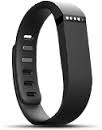Medtech is resilient, adapting to the changing demands of patients, payers, regulators, and the economy, but only in the hands of the innovators who keep a finger in the wind on these demands.
Medtech is resilient, adapting to the changing demands of patients, payers, regulators, and the economy, but only in the hands of the innovators who keep a finger in the wind on these demands.
- Comprehensive outcomes versus symptomatic intervention. Competition in medtech, heightened by cost pressures in particular, is characterized by the demand for comprehensive solutions to disease/trauma rather than technologies that simply ameliorate symptoms. Manufacturers are focusing on longer term solutions, competing against the full spectrum of therapeutic alternatives rather than incremental improvements in their widgets.
- Whatever the cost, make it lower. Cost is poorly understood in healthcare (hence the problem!), but it is recognized as important simply by the rate at which premiums increase, the percentage of GDP adding to healthcare spending, the cost of Medicare and other similar benchmarks. Cost is difficult to assess in medical technologies, because there are long term, unforeseen implications of nearly every medtech development. Nonetheless, the manufacturer who does not only bow down in homage to cost but also makes cost at least an implicit part of its value proposition will be quickly put out of business.
- The life spans of “gold standards” of treatment are getting shorter and shorter. Technology solutions are being developed, from different scientific disciplines, at such a pace as to quickly establish themselves, in a broad enough consensus, as new gold standards. Physicians are increasingly compelled to accept these new new standards or find their caseload shifting to those who do.
- Many manufacturers strive for being able to claim their products are “disruptive” — overturning existing paradigms. However, few medtech manufacturers really ever achieve anything more than marginal improvements. Note the relative amount of 510Ks versus PMAs in regulatory approvals (not that a PMA denotes a “disruptive” development).
- Materials technologies are defining what is a “device” as well as what they can accomplish. Competitive manufacturers are aggressively gaining a broad understanding of materials technologies to encompass traditional device, pharma, biopharma, biotech, cell biology and others, ensuring their success from a broadly competitive position.
- Interest in startup innovations by VCs and large-cap medtech companies has never been more intense, but funding still demands concrete milestones. Proof-of-concept gets entrepreneurs excited, but 510(K) or better is what gets the money flowing. This is not the credit-crunch of 2008, when the sour economy caused funding to largely dry up. Money is indeed flowing into medtech now, as evidenced by the IPO market and the volume of early stage funding, but potential investments — especially at very early stages — are no less intensively vetted. Startups must therefore carry the risk well into the development timeline, when the prospect of their products reaching the market has been demonstrated far more effectively.
- Medtech markets are influenced by many forces, but none more strongly than the drive of companies to succeed. Reimbursement. Regulatory hurdles. Healthcare reform. Cost reduction, even a 2.3% medical device excise tax, et cetera, et cetera. None of these hold sway over innovation and entrepreneurship. And the rate of innovation is accelerating, further insulating medtech against adverse policy decisions. Moreover, that innovation is reaching a sort of critical mass in which the convergence of different scientific disciplines — materials technology, cell biology, biotech, pharma and others — is leading to solutions that stand as formidable buttresses against market limiters.
- Information technology is having, and will have, profound effects on medical technology development. The manufacturers who “get” this will always gain an advantage. This happens in ways too numerous to mention in full, but worth noting are: drug and device modeling/testing systems, meta-analysis of clinical research, information technology embedded in implants (“smart” devices), and microprocessor-controlled biofeedback systems (e.g., glucose monitoring and insulin delivery). The information dimension of virtually every medtech innovation must be considered by manufacturers, given its potential to affect the cost/value of those innovations.
This is not a comprehensive list of drivers/limiters in medtech, but these stand behind the success or failure of many, many companies.





